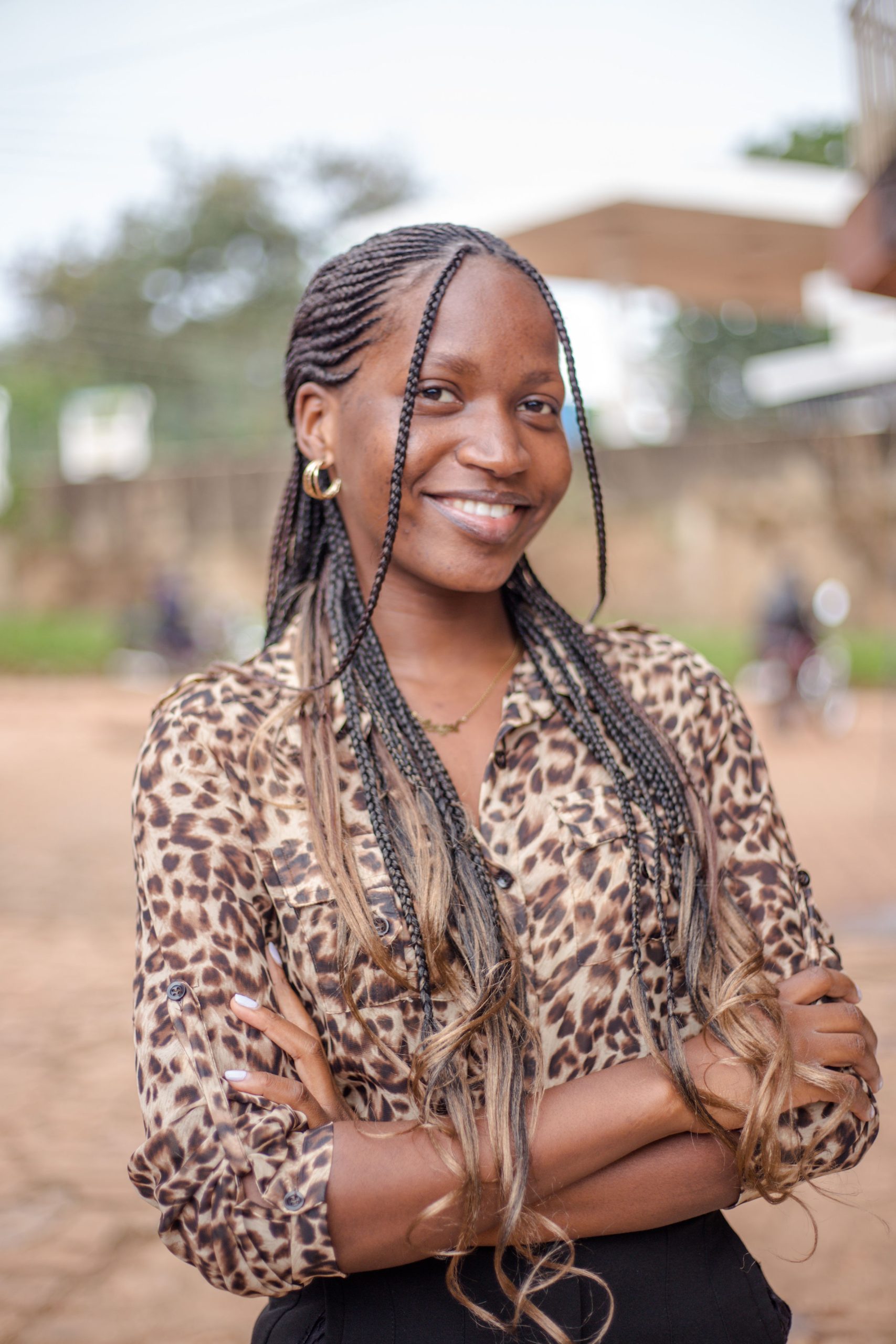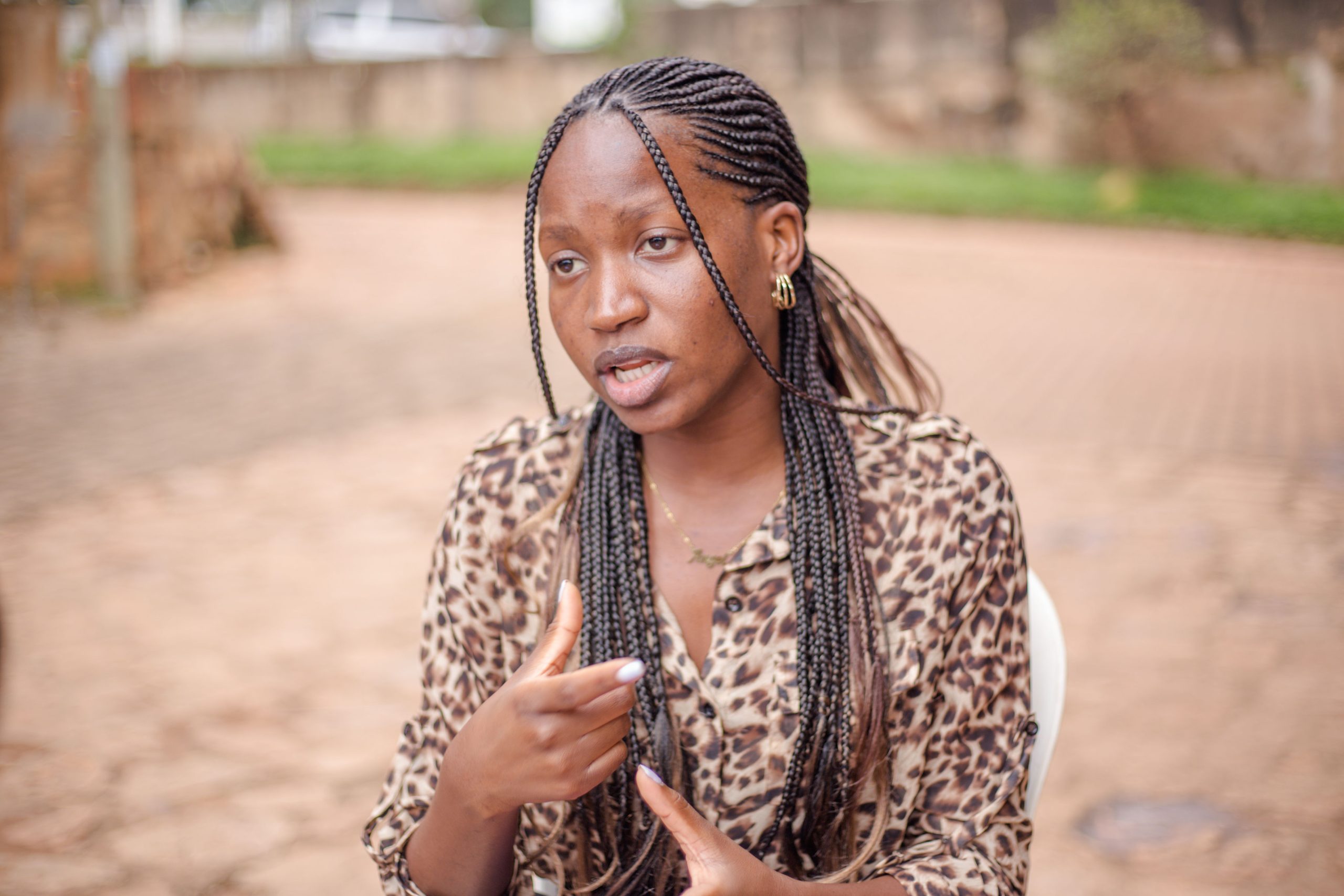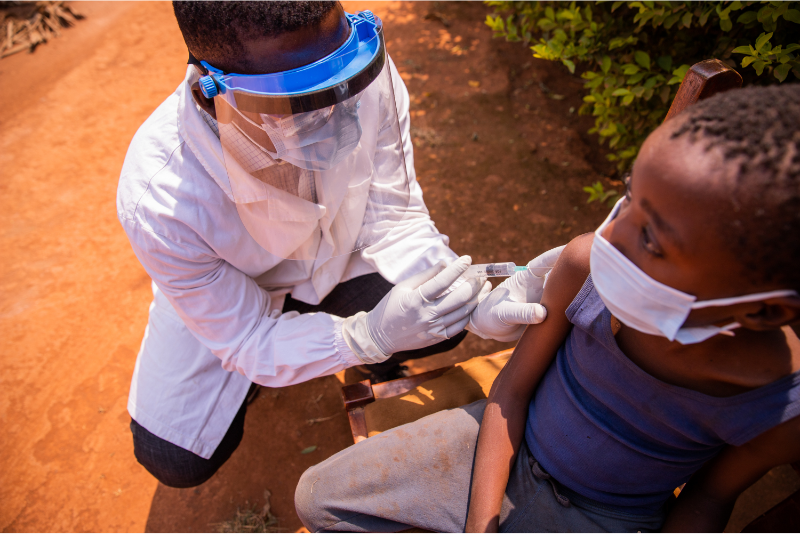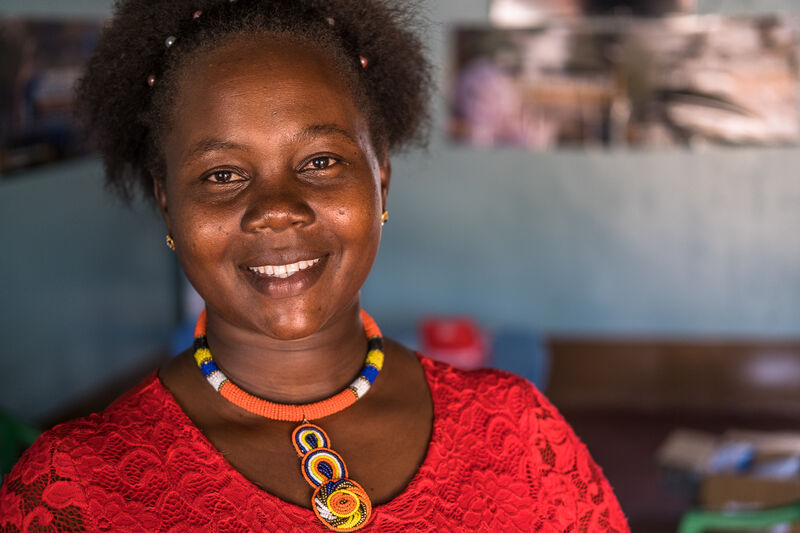

POWER ENTREPRENEUR: ANGEL BABIRYE, US FOR GIRLS
Empowering Women Entrepreneurs: The POWER to Transform Family Planning in Uganda
Meet Angel Babirye, A.K.A Malaika, CEO for Us for Girls, a new social enterprise in Uganda that is part of the POWER family (Providing Opportunities for Women in Entrepreneurship and Reproductive Health). POWER is a new startup accelerator partnership funded by DSW and led by Action for Health Uganda. The program focuses on providing training, capacity development, and mentoring to women entrepreneurs in Uganda aged 18 to 30. The primary aim of which is in the empowerment of these young women towards the development of sustainable businesses in the fields of family planning and sexual reproductive health and rights (FP/SRHR)
‘Us for Girls’ is dedicated to radically improving menstrual hygiene management for young women in- and out-of-school in some of the poorest districts in Uganda. Angel is a health professional in the field of nursing and a final year student at Mbarara University of science and technology currently doing her medical internship at Mulago referral hospital in Kamapala the Capital city of Uganda. She is a youth activist, social entrepreneur, and an ambassador of ‘Love your Period Campaign’ in partnership with Love your Period, Wales in the UK. Recently she won the ‘Rights and Social Action Project of the Year’ award for the work across Wales, in partnership with Molly Fenton, founder of Love your Periods.
The Us for Girls company was initially started in 2021 with a team of four medical students with the aim helping girls to, not only remain in school, but to reach their fullest potential and thrive. Their vision is of society free from menstrual hygiene stigma. Us for Girls provides affordable Menstrual Hygiene Management (MHM) products and services tailored for adolescent girls and young women in both rural and urban settings. Collaborating with government agencies, academic institutions, development partners, and civil society organizations, the startup is dedicated to realizing its vision. In addition to their efforts with young school-going adolescents, they also empower women in the community by teaching them to craft safe, absorbent sanitary pads. This skill not only serves a vital health need but also provides a means for these women to generate income, thereby improving their livelihoods.
Can you share with us your journey to becoming an entrepreneur, and what inspired you to create a startup FP/SRHR sector?
During our fieldwork as students, we encountered young girls missing lessons, dropping out of school due to their inability to afford sanitary pads. Some were using rugs and clothes putting their lives in danger, while those who could afford were trading their bodies in exchange for money to buy sanitary pads and other basic essential needs. After witnessing the reality facing these young women, my team and I decided to start a social enterprise to support young girls and adolescents address periodic poverty and improve their livelihood through skilling for employment.
How has your participation in the POWER pilot project impacted your business and personal growth? Are there any specific skills or knowledge that you gained during the program that have been particularly valuable?
Through the POWER accelerator program, I learnt basic skills in fundraising, business pitching, planning, and building a sustainable winning team to drive my social enterprise. I started fundraising through hostels, selling menstrual tins and cups to raise funding to support vulnerable girls. Initially our idea was just to help without creating a business around it! However, POWER brought a business perspective that transformed our approach. They assisted in developing a comprehensive business plan, which we then successfully presented to potential donors, reshaping our strategic thinking in the process. In addition, I learnt skills in social marketing, segmentation, and networking, which have all contributed to the growth of our startup. It is due to this that we have diversified our service and product range to include production and sale of re-usable sanitary pads, skilling young women for employment, production of menstrual pamphlets to track their periods and access reliable SRHR information, and the sale of menstrual hygiene kits products, bags, cups, and disposable bins. We target schools, institutions, universities, health facilities and pharmacies, churches and other religious institutions with our services and products.
Could you describe the innovative solution or service your startup provides in the FP/SRHR sector? Specifically, how does it tackle a particular challenge or fill a notable gap in this field?
Our social enterprise, Us for Girls, offers menstrual hygiene management education, sexuality education, skilling in production of eco-friendly sanitary pads, periodic trackers and pamphlets, and disposable bins. These are critical to equipping girls and adolescents to remain in school with confidence and fight periodic poverty through skilling. This ensures improved school enrollment, retention and progression while creating employment opportunities for girls through production and sale of sanitary pads.
What were some of the biggest challenges you faced as a woman entrepreneur in Uganda, and how did the POWER pilot project help you overcome or navigate these challenges?
The biggest challenge on my journey towards becoming a women entrepreneur was how to find funding. Most investors want to fund NGOS, community based organizations, and other startups with more established structures, facilities, and experience in the field, so securing investment has been a big challenge. Access to modern equipment and quality raw materials for production of sanitary pads has been a challenge due to these funding gaps. Materials are very expensive and usually imported from Kenya. However, through POWER, I was able to link up with Wabibi Pads, Reproductive Health Uganda, and Love your Periods in Wales, who have all supported us with funding, technical support, and visibility.
Could you share a success story or a memorable milestone that you achieved during your participation in the POWER pilot project? How did it contribute to the growth and impact of your business?
Through networking and partnership building, I have been able to secure some funding and I have built sustainable partnerships with Reproductive Health Uganda, Love your Periods, Mbarara University of science and technology, and Wabibi Pads. We have established a collaboration with Reproductive Health Uganda, securing working spaces where we produce our menstrual hygiene products. These products are then sold to various institutions and clients.
How has the mentorship component of the POWER pilot project played a role in shaping your entrepreneurial journey? Were there any specific mentors or advisors who made a significant impact on your business development?
Through POWER I was mentored in investor pitching from professional mentors and acquired key insights in monitoring and evaluation of social enterprises. Through field exposure visits, I interacted with clients and expert entrepreneurs who motivated me to keep pushing forward with my ideas. This has shaped and kept me resilient amidst the ups-and-downs in starting a business such as this.

Building a network is crucial for entrepreneurs. Are there any specific partnerships or opportunities that have arisen as a result?
POWER developed a platform for interacting and meeting various stakeholder such as Wabibi Pads, Reproductive Health Uganda, the Together Alive Health Initiative (TAHI), and Love your Periods. These have supported visibility, funding, and social marketing. I am also proud to announce that we won the ‘Rights and Social Action Project of the Year’ award for the work we have done across Wales together with Molly Fenton, founder of Love your Periods. Through networking skills, we have built strong partnership with Mbarara University of Science and Technology and we are part of the period equality network, African Youth Adolescent network (AFYAN), and Pacis in Burundi.
As an entrepreneur, what is your long-term vision for your startup?.
We envision developing a sustainable social enterprise registered in Uganda with a vibrant business model and quality products to address menstrual hygiene management and education for adolescents living in vulnerable communities to improve school enrollment, retention, and progression through ending periodic poverty. We want to scale up our operations all over Uganda and later on at the international level.
What advice would you give to other aspiring women entrepreneurs who are interested in starting a business in the FP/SRHR sector? Are there any key lessons or insights you’ve gained that you would like to share?
My advice to aspiring women social entrepreneurs is to start from where you are – embrace your passion, love what you do, and dedicate time to build it to excellence. Don’t be sacred to start! Associate now with mentors and professionals to learn new trends in the industry while building a strong team with a common vision so as to drive your social enterprise to greater heights. Always research, use the rights tools and approaches to talk to clients to understand their needs and demands.
Looking ahead, what is your future for your startup? Do you have any new projects, expansions, or collaborations in the pipeline?
Us for Girls will continue to pursue new partnerships and sustain existing ones both nationally and internationally. We plan to improve our products based on client feedback and join sustainable networks with a common vision so as to grow our social enterprise. Our future is to register a company limited by guarantee to scale up operations and programs in Uganda and abroad. We aim to acquire three to five new machines, each costing approximately UGX 3,500,000 (921 EUR), to enhance our production of quality sanitary pads for the market. This expansion includes introducing innovative menstrual hygiene bags and kits. These products will be available for sale in all educational institutions and community safe spaces, integrating FP/SRHR commodities. The future is wide open!
Angel Babirye, through Us for Girls, has made significant strides in Uganda’s FP/SRHR sector. Her efforts in improving menstrual hygiene management and empowering young women showcase the transformative power of focused, collaborative entrepreneurship. Babirye’s journey with POWER highlights the potential for sustainable social impact in addressing critical health and educational needs.
Find out more about POWER here: https://www.dsw.org/en/power/
Have a question about POWER or would like a chat? Reach out to us!
- Shane O’Halloran, Head of DSW’s Digital Transformation and Business Development Unit. Email: ohalloran@dsw.org
- Hassan Waswa, Social Entrepreneurship Manager, Action for Health Uganda. Email: hassan.waswa@a4huganda.org


Comments